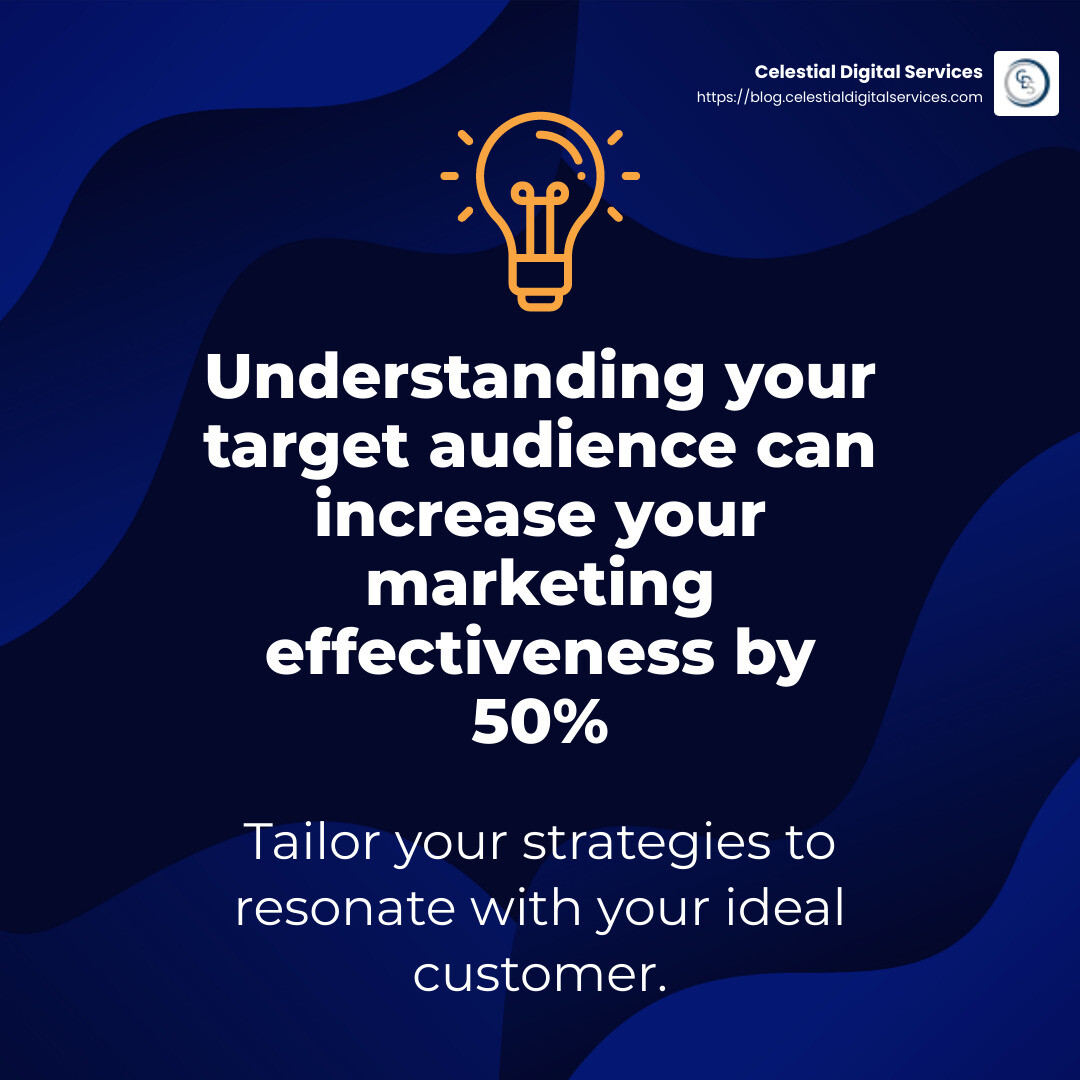Welcome to a comprehensive guide on lead generation strategies for small business. If you’re a tech-savvy small business owner keen on boosting your online presence and customer engagement, you’re in the right place.
Here’s a quick answer to your search: To effectively generate leads, identify your target audience and use strategies like offering irresistible opt-ins, leveraging social media, and optimizing for local SEO. Being resourceful and agile is key, allowing you to test different tactics and quickly pivot to what works best.
Lead generation is the lifeline of business growth. It’s about finding potential customers and convincing them that your services solve their problems. Unique strategies are essential for captivating interest and building trust with your audience. This guide will introduce you to various methods to achieve these goals.
With over a decade of expertise in digital marketing, particularly in lead generation strategies for small business, I have honed the art of crafting digital solutions to meet unique business needs. By implementing these strategies, you’ll lift your lead generation efforts and drive substantial growth.
Let’s dig deeper into understanding lead generation for small businesses.

Quick lead generation strategies for small business terms:
– lead generation best practices
– lead generation marketing strategies
– lead generation tactics
Understanding Lead Generation for Small Business
At the core of successful lead generation strategies for small business is a deep understanding of your target audience. Knowing who your potential customers are and what they need is crucial. When you understand their pain points and desires, you can tailor your messaging to speak directly to them. This is where the concept of a buyer persona comes into play.
Defining Your Buyer Persona
A buyer persona is a detailed profile of your ideal customer. It goes beyond basic demographics like age and location. You should consider their interests, challenges, and buying behaviors. For example, if you run a small bakery, your buyer persona might be a busy mom looking for healthy snack options for her kids. Understanding this helps you create marketing messages that resonate.

Resourceful Strategies for Lead Generation
Small businesses often have limited resources compared to large corporations, but this can be an advantage. You can be more agile and test different lead generation strategies without the bureaucratic problems. Here are a few resourceful approaches:
-
Experiment with Opt-in Offers: Create exclusive content or offers that your audience can’t resist. This could be a free eBook, a discount code, or a webinar. The key is to make it valuable enough that potential leads are willing to exchange their contact information for it.
-
Leverage Social Media: Platforms like Facebook and Instagram are not just for socializing. They are powerful tools for reaching your audience. Engage with your followers through interactive content and direct them to your website or opt-in offers.
-
Optimize for Local SEO: If your business relies on local customers, make sure you show up in local search results. This involves optimizing your website with local keywords and getting listed on platforms like Google My Business.
-
Retargeting Ads: These ads help remind visitors of your business after they’ve left your site. It’s a cost-effective way to keep your brand in their minds and encourage them to return and convert.
The Agile Advantage
Being a small business means you can pivot quickly. If a strategy isn’t working, you can adjust it without the red tape that larger companies face. This agility allows you to learn fast and iterate even faster, ensuring that every marketing dollar counts.
In summary, understanding your audience and utilizing resourceful strategies are key to successful lead generation. By defining your buyer persona and leveraging your agility, you can effectively attract and convert leads, setting your small business on the path to growth.
Next, we’ll explore 15 specific strategies you can use to improve your lead generation efforts.
15 Small Business Lead Generation Strategies
Igniting the growth of your small business starts with effective lead generation strategies. Here, we’ll explore 15 practical tactics that can help you capture and nurture leads, turning potential customers into loyal patrons.
1. Sweeten the Deal with Opt-in Offers
Create irresistible opt-in offers that entice potential leads to share their contact information. Think beyond basic email subscriptions. Offer exclusive content like eBooks, templates, or free trials. Make these offers so appealing that your audience can’t resist signing up.
2. Master the Art of Discounting
Discounting can be a powerful tool when used strategically. Offer first-time buyer discounts or incentives for referrals. But beware of over-discounting, which can devalue your brand. Instead, use discounts to boost lead traffic and build customer loyalty.
3. Share Your Expertise on YouTube
YouTube is a goldmine for lead generation. Share your expertise through informative videos that provide value to your audience. This not only builds trust but also attracts a loyal following who are more likely to convert into customers.
4. Keep at it with Retargeting Ads
Retargeting ads remind previous website visitors about your business. These ads keep your brand top-of-mind and encourage visitors to return and take action. It’s like a gentle nudge saying, “Hey, remember us? We’ve got what you need.”
5. Get More Eyeballs with Local SEO
Optimizing for local search engine optimization ensures your business appears in local search results. Use relevant keywords and high-quality content to increase visibility. Don’t forget to list your business on Google Maps and Apple Maps for easy findy.
6. Stay Fresh with Engaging Email Marketing
Email marketing remains a tried-and-true method for lead generation. Build relationships with potential customers through engaging email campaigns. Focus on providing value and nurturing leads to guide them through the sales funnel.
7. Leverage the Power of Blogging
Consistent blogging helps establish your authority and attract leads. Create valuable content that addresses your audience’s pain points. This not only drives traffic to your website but also positions you as a trusted resource in your industry.
8. Harness Social Media Platforms
Social media is not just for socializing—it’s a powerful lead generation tool. Engage with your audience through interactive content and direct them to your website or opt-in offers. Platforms like Facebook and Instagram offer immense potential for reaching your target market.
9. Host Events and Webinars
Hosting events and webinars allows you to connect with potential leads directly. These events provide an opportunity to showcase your expertise and build relationships. Attendees are more likely to convert into customers after engaging with your content.
10. Partner with Influencers
Collaborate with influencers who align with your brand. Their endorsement can expand your reach and introduce your business to a wider audience. Establishing long-term relationships with influencers can significantly boost your lead generation efforts.
11. Grow Your Network on LinkedIn
For B2B businesses, LinkedIn is a treasure trove of potential leads. Join industry groups, engage with thought leaders, and publish relevant content to establish your authority. Connect with like-minded professionals and potential leads organically.
12. Take Aim by Targeting Specific Niche Markets
Identify niche markets that need your solutions and tailor your messaging to speak to their unique needs. Use social media and ad platforms to target these specific audiences, ensuring your message resonates with them.
13. Don’t Forget Snail Mail
Snail mail can still be effective. Well-designed and personalized mailers can cut through the digital noise and capture attention. Use direct mail campaigns to start conversations and generate leads in your local market.
14. Release Your Creativity
Think outside the box and accept creativity in your lead generation efforts. Experiment with new ideas and approaches. Whether it’s a quirky campaign or an innovative product launch, creativity can set your business apart and attract attention.
By implementing these strategies, you can fuel the fire that ignites your small business’s growth. Next, we’ll dive into choosing the right tools to streamline and improve your lead generation process.
Lead Generation Strategies for Small Business
Effective lead generation strategies for small business can transform your growth trajectory, helping you capture and nurture potential customers in innovative ways. Here’s a breakdown of strategies you can implement to fuel your business success:
1. Sweeten the Deal with Irresistible Opt-in Offers
Capture your audience’s interest with compelling opt-in offers. These could be exclusive downloadable content, free trials, or how-to webinars. The goal is to provide value that’s too good to pass up, encouraging visitors to share their information with you.
2. Master the Art of Discounting
Strategically use discounts to attract new leads. Offer special deals for first-time buyers or create referral incentives. This approach not only draws in new customers but also encourages existing ones to spread the word about your business.
3. Share Your Expertise on YouTube
Establish authority and trust by sharing your knowledge on YouTube. Create videos that address common problems your audience faces. Consistency is key; regular content builds a loyal following and positions you as an industry leader.
4. Keep at it with Retargeting Ads
Retargeting ads remind previous visitors about your business, keeping your brand fresh in their minds. These ads can be a gentle nudge to encourage them to return to your site and complete a purchase.
5. Get More Eyeballs with Local SEO
Optimize your website for local searches to ensure you appear in relevant local results. Use location-specific keywords and register your business on Google Maps and Apple Maps. This increases your visibility and draws in local customers.
6. Stay Fresh with Engaging Email Marketing
Email marketing is a powerful tool for nurturing leads. Create engaging campaigns that offer real value and guide potential customers through the sales funnel. It’s about building relationships, not just making sales.
7. Leverage the Power of Blogging
Regular blogging helps establish your authority and attract organic traffic. Write about topics that address your audience’s pain points, and use your blog to showcase your expertise. This builds trust and positions you as a go-to resource.
8. Harness Social Media Platforms
Use social media to engage with your audience and direct them to your website or opt-in offers. Platforms like Facebook and Instagram offer great opportunities for reaching your target market with interactive content.
9. Host Events and Webinars
Events and webinars allow for direct interaction with potential leads. These platforms offer a chance to demonstrate your expertise and build relationships. Participants are more likely to convert into customers after engaging with your content.
10. Partner with Influencers
Collaborate with influencers who resonate with your brand values. Their endorsement can introduce your business to a broader audience, enhancing your reach and credibility.
11. Grow Your Network on LinkedIn
For B2B businesses, LinkedIn is invaluable. Engage with industry groups, connect with thought leaders, and post relevant content. This platform is perfect for building a professional network and generating leads organically.
12. Take Aim by Targeting Specific Niche Markets
Identify niche markets that would benefit from your solutions and tailor your marketing to their specific needs. Use social media and ad platforms to reach these audiences with targeted messaging.
13. Don’t Forget Snail Mail
Snail mail can still be impactful. Personalized, well-designed mailers can stand out and initiate conversations in your local market.
14. Release Your Creativity
Think outside the box and accept creativity in your marketing efforts. Innovative campaigns and fresh ideas can capture attention and differentiate your business from competitors.
By integrating these strategies, you can effectively boost your lead generation efforts and drive your small business towards success. Next, we’ll explore how to select the right tools to streamline and improve your lead generation process.
Choosing the Right Small Business Lead Generation Tools
Selecting the appropriate tools can make a significant difference in your lead generation strategies for small business. Here, we’ll dive into three essential categories: CRM, prospecting tools, and inbound marketing tools. These tools help streamline your processes, making it easier to connect with potential customers and nurture them into loyal clients.
CRM: Your Lead Management Ally
A Customer Relationship Management (CRM) system is your go-to tool for organizing and tracking leads. It acts like a digital Rolodex, storing all your customer information in one place. CRMs such as Zoho, Salesforce, and HubSpot offer features that help you:
- Qualify Leads: Use lead scoring to prioritize hot leads over cold ones.
- Track Interactions: Keep a record of every interaction, making follow-ups timely and relevant.
- Automate Tasks: Save time with automation features for emails and reminders.
By using a CRM, you ensure no lead falls through the cracks and that your marketing efforts are targeted and effective.

Prospecting Tools: Finding Your Next Customer
Prospecting tools are essential for reaching out to potential leads. They help you identify and connect with prospects who fit your target audience. Tools like LinkedIn Sales Navigator and Hunter are popular choices. Here’s how they can help:
- Advanced Searches: Find prospects based on industry, job title, or location.
- Direct Outreach: Contact prospects via email or social media with a personalized approach.
- Email Verification: Ensure your emails reach the intended recipients with verification features.
These tools empower you to be proactive in your lead generation efforts, bringing you closer to potential customers who are likely to be interested in your offerings.
Inbound Marketing Tools: Attracting Leads to You
Inbound marketing is all about drawing leads to your business. Tools like Adroll, Hootsuite, and WordPress are instrumental in creating and distributing content that engages your audience. Here’s what they offer:
- Adroll: Set up ads across multiple platforms and create retargeting campaigns to bring visitors back to your site.
- Hootsuite: Manage and schedule social media posts, ensuring consistent engagement with your audience.
- WordPress: Build a blog to attract organic traffic through SEO, positioning yourself as an authority in your field.
By leveraging inbound marketing tools, you can create a steady flow of leads who are already interested in what you have to offer.
Choosing the right tools is crucial for maximizing your lead generation efforts. With the right CRM, prospecting tools, and inbound marketing platforms, you can efficiently manage leads, reach out to new prospects, and attract potential customers to your business. Up next, we’ll tackle frequently asked questions about these strategies to help you gain even more insights.
Frequently Asked Questions about Lead Generation Strategies for Small Business
How do small businesses generate leads?
Small businesses have a variety of ways to generate leads, and the key is to use methods that align with their unique goals and resources. Here are some effective strategies:
-
AI and Automation: Automation tools can streamline repetitive tasks, freeing up time for more strategic activities. For instance, automated email sequences can nurture leads without constant manual input. However, it’s important to avoid over-automation, as it can create a disconnect with potential customers. A personalized touch is often what sets small businesses apart.
-
Video Marketing: With platforms like YouTube, video marketing offers a dynamic way to reach potential customers. People love video content because it’s engaging and easy to digest. Creating tutorials, product demos, or customer testimonials can capture interest and drive traffic to your website.

-
Business Network: Building a strong network of partners and industry peers can be a rich source of leads. Networking events, both online and offline, can help you connect with potential customers and collaborators who can refer business your way.
What are the 4 L’s of a lead generation strategy?
Understanding the 4 L’s can help streamline your lead generation process:
-
Landing Pages: These are crucial for capturing leads. A well-designed landing page with a clear call-to-action (CTA) can convert visitors into leads. Make sure your landing page is simple, focused, and mobile-friendly.
-
Lead Magnets: Offer something valuable in exchange for contact information. This could be a free e-book, a discount, or a webinar. The goal is to provide enough value that potential customers are willing to share their details.
-
Leads: Once you have contact information, these individuals become leads. It’s important to track and manage these leads effectively using a CRM system to ensure they don’t fall through the cracks.
-
Lead Scoring: Not all leads are created equal. Use lead scoring to prioritize them based on their likelihood to convert. This helps focus your efforts on the most promising prospects.
How to generate leads in sales?
Generating sales leads involves a mix of direct and indirect approaches:
-
Referrals: Encourage satisfied customers to refer others. This can be one of the most effective lead generation strategies because people trust recommendations from those they know.
-
Outreach: Direct outreach, such as cold emailing or calling, can be effective if done thoughtfully. Personalize your messages and offer real value to capture interest.
-
Networking: Attend industry events, join online forums, and participate in community groups. Networking helps you build relationships that can lead to new business opportunities.
Each of these strategies can be custom to fit the specific needs and capabilities of your small business. By leveraging a mix of AI, video marketing, and networking, you can create a robust lead generation system that supports your growth goals.
Conclusion
In the changing digital landscape, small businesses need to adopt effective lead generation strategies to thrive. At Celestial Digital Services, we understand the unique challenges faced by startups and local enterprises. Our mission is to empower these small businesses with innovative digital solutions that simplify online marketing.
We offer a comprehensive suite of services, from SEO and social media marketing to lead generation and AI-based tools. These services are designed to help businesses increase their online presence and attract high-quality leads. By focusing on personalized solutions, we ensure that every strategy aligns with the specific goals and resources of our clients.
One of the key aspects of successful lead generation is understanding your target audience. Knowing their pain points and preferences allows you to craft messages and offers that resonate. At Celestial Digital Services, we help you identify and reach your ideal customers through custom strategies that maximize engagement and conversion.
Our lead generation services are crafted to provide measurable results. We believe in the power of data-driven decisions and continuous optimization to ensure your business stays ahead of the competition. Whether through compelling content, strategic partnerships, or cutting-edge technology, our goal is to fuel your business growth.
By partnering with Celestial Digital Services, small businesses gain access to expertise and tools that are usually reserved for larger enterprises. We are committed to delivering exceptional value and helping you achieve your business objectives. Let us be the spark that ignites your success in the digital world.



